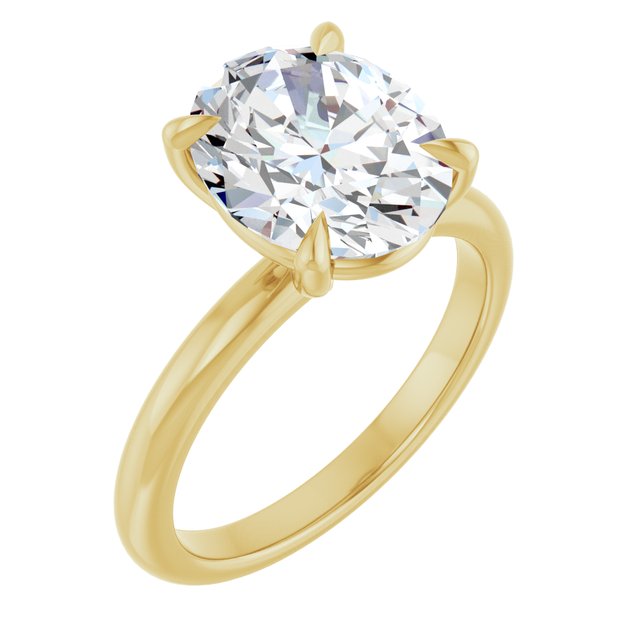Buying an engagement ring is one of the most significant purchases you’ll make, symbolizing your love and commitment to your partner. While the process can be exciting, it can also feel overwhelming due to the sheer variety of options available. From choosing the perfect stone to selecting the right setting, there are numerous decisions to make, and asking the right questions can simplify the process.
This blog will walk you through the essential questions to ask before purchasing an engagement ring, helping you make an informed decision that suits both your partner’s preferences and your budget.
1. What Is My Budget?
Before anything else, determine how much you’re willing to spend on the ring. While some people adhere to the traditional “three months’ salary” rule, there is no universal guideline—what matters most is finding a ring that fits your financial situation.
Why This Matters: Establishing a budget upfront helps narrow down your options, preventing overspending or unrealistic expectations.
Pro Tip: Many jewelers offer financing plans or flexible payment options to make the purchase more manageable.
2. What Style Does My Partner Prefer?
The engagement ring should reflect your partner’s taste and personality. Pay attention to the jewelry they already wear—do they lean toward modern or classic designs? Do they prefer gold, silver, or rose gold tones?
How to Find Out:
- Observe their existing jewelry.
- Ask their close friends or family for input.
- If subtlety isn’t possible, consider shopping together or dropping hints in casual conversations.
Popular Styles to Consider:
- Solitaire: A timeless single-stone design.
- Halo: Features a center stone surrounded by smaller diamonds.
- Vintage: Intricate designs with a nostalgic charm.
3. What Diamond Shape Does My Partner Prefer?
Diamonds come in a variety of shapes, each offering a unique look and feel. The most popular options include:
- Round: Classic and brilliant.
- Princess: Square-shaped and modern.
- Oval: Elegant and elongating.
- Emerald: Vintage-inspired with a step-cut design.
Choosing the right shape is crucial, as it sets the tone for the entire ring. If your partner has a favorite, prioritize that shape when shopping.
4. What Metal Should I Choose for the Band?
The metal of the band significantly affects the ring’s appearance, durability, and maintenance. Common options include:
- Platinum: Durable and hypoallergenic, perfect for everyday wear.
- White Gold: Affordable and stylish, though it requires occasional rhodium plating.
- Yellow Gold: Timeless and warm, ideal for vintage styles.
- Rose Gold: Romantic and trendy, offering a unique aesthetic.
Consider Lifestyle: For someone with an active lifestyle, durable metals like platinum are a better choice.
5. What Should I Know About the 4 Cs?
The 4 Cs—Cut, Clarity, Color, and Carat—are the universal standards for evaluating diamond quality.
- Cut: Impacts how the diamond reflects light, affecting its brilliance.
- Clarity: Measures the presence of inclusions or imperfections; fewer flaws mean higher clarity.
- Color: Ranges from colorless (most desirable) to yellow; colorless diamonds are the most valuable.
- Carat: Refers to the weight (size) of the diamond.
Understanding the 4 Cs allows you to balance quality and cost effectively, focusing on the aspects that matter most to your partner
.


6. Should I Consider Alternatives to Diamonds?
Diamonds are the traditional choice, but alternatives like moissanite, white sapphires, or morganite offer unique and affordable options.
Why Consider Alternatives:
- More budget-friendly than diamonds.
- Ethical and sustainable, particularly lab-grown stones.
- Distinctive looks that set your ring apart.
7. Is the Jeweler Reputable?
Choosing the right jeweler is as important as selecting the ring itself. Look for a jeweler with a strong reputation, excellent customer service, and transparency about their products.
Questions to Ask the Jeweler:
- Are the diamonds conflict-free?
- Can you provide certification for the stone?
- What warranty or return policies do you offer?
Pro Tip: Research online reviews and ask for recommendations to find a trusted jeweler.
8. What Are the Practical Considerations?
Beyond aesthetics, think about practical aspects of the ring, such as:
- Sizing: Ensure the ring fits perfectly or ask about resizing options.
- Maintenance: Understand how often the ring will need cleaning, polishing, or repairs.
- Insurance: Consider insuring the ring to protect your investment against loss or damage.
9. Should I Design a Custom Ring?
For a truly unique piece, consider working with a jeweler to design a custom ring. This allows you to create a ring that perfectly matches your partner’s style and preferences.
Benefits of Customization:
- Personalization: Add meaningful details, like engravings.
- Full Control: Choose every element, from the stone to the setting.
Conclusion
Buying an engagement ring is a deeply personal journey that requires careful thought and planning. By asking the right questions about budget, style, diamond quality, and practicality, you can make an informed decision that ensures your partner will cherish the ring for a lifetime.
Take your time, research thoroughly, and don’t hesitate to seek guidance from a trusted jeweler. After all, an engagement ring isn’t just a piece of jewelry—it’s a symbol of your love and commitment, meant to last forever.


